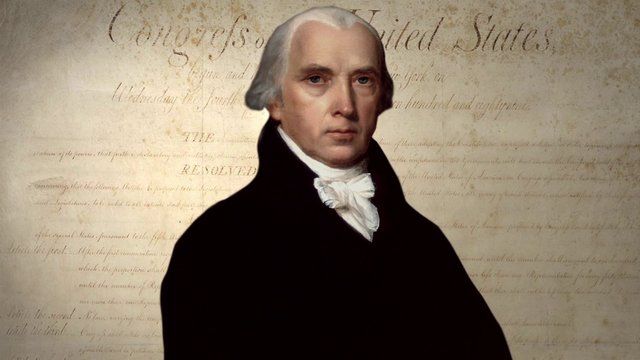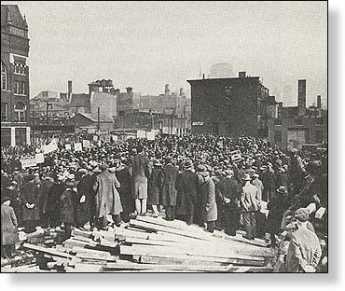Related Topics
Medical Economics
Some Philadelphia physicians are contributors to current national debates on the financing of medical care.
Insurance in Philadelphia
Early Philadelphia took a lead in insurance innovation. Some ideas, like life insurance, flourished. Others have faded.
Philadelphia Economics
economics
Indigents
With a long history of welcoming and assisting the poor, Philadelphia has always risked swamping the lifeboat by attracting more of them than it can handle.
Insuring the Uninsured is Not Entirely a Health Issue

|
| James Madison |
shrewdly observed that people could and would restrain state taxation by moving to a neighboring state. The founding fathers never contemplated health insurance or Medicaid, of course, but the same principle applies there in reverse. If one state gets too generous with health and welfare benefits, people in neighboring states will nowadays hear of it and get on a bus to relocate advantageously. A flood of new low-income citizens may or may not be what a particular state wants, depending on local economic conditions.
For example during the great depression of the 1930s,

|
| The Great Depression |
Unemployment was so widespread that no state dared attract still more of it with generous welfare benefits. On the other hand, during the recovery period that followed World War II, the industrial northern states definitely did attract cheap labor from the southern states, using better health care, freely available, along with better unemployment benefits. In each case, employers alternate between wanting cheap labor or low taxes, while labor representatives relax or toughen their resistance to the cheap competition. Politicians are always looking for the argument that carries the most votes. If you want to understand the persistence of employer-based health insurance alongside unobtainable health insurance for others, look into this trio of motivations.
While it's true state legislatures must tend to the infrastructure, crime conditions and education, they can in the main be regarded as debating societies between employers and labor. There is some, but not much, the difference between Republicans and Democrats on the Medicaid issue. A Democratic Governor will welcome an influx of low-income voters who will normally vote for his party, but labor unions will soon remind him that enough is enough. A Republican Governor will gladly supply cheap labor for the state's employers until rising taxes bring an end to his support. Since the financial stability of the local hospital can be badly jarred by the instability of Medicaid payments, doctors soon get annoyed with the misalignment between state motives and the welfare of their patients. It is not much of an exaggeration, that state coffers might be overflowing with the surplus, but the budget of Medicaid will not rise a penny if it would attract poverty migrants from neighboring states during a period of high unemployment.
The obvious solution is a federal one, imposing uniform standards. But think that over a little before you jump at it. If the federal government pays all of Medicaid costs, it is going to want to administer the program. All states resist that idea, more so if local and federal political domination is in conflict. Small states will universally be fearful of being overwhelmed by large neighbors, particularly when they have achieved advantageous niches. The disastrous condition of the auto industry might persuade Michigan to agree, but Tennessee and other states with Japanese car plants might disagree. As you get close to the border of large states, hospitals near the border can often attract many patients from the other state; strange political bedfellows can link arms in Congress when you might not expect it.
None of this, absolutely none of it, has to do directly with medical care. But the quality of health care is strongly affected, and doctors are sick of hearing about poor sick folks when the real issue is labor availability. The voice is Jacob's voice, but the hand -- is the hand of Esau.
Originally published: Wednesday, February 21, 2007; most-recently modified: Wednesday, May 22, 2019